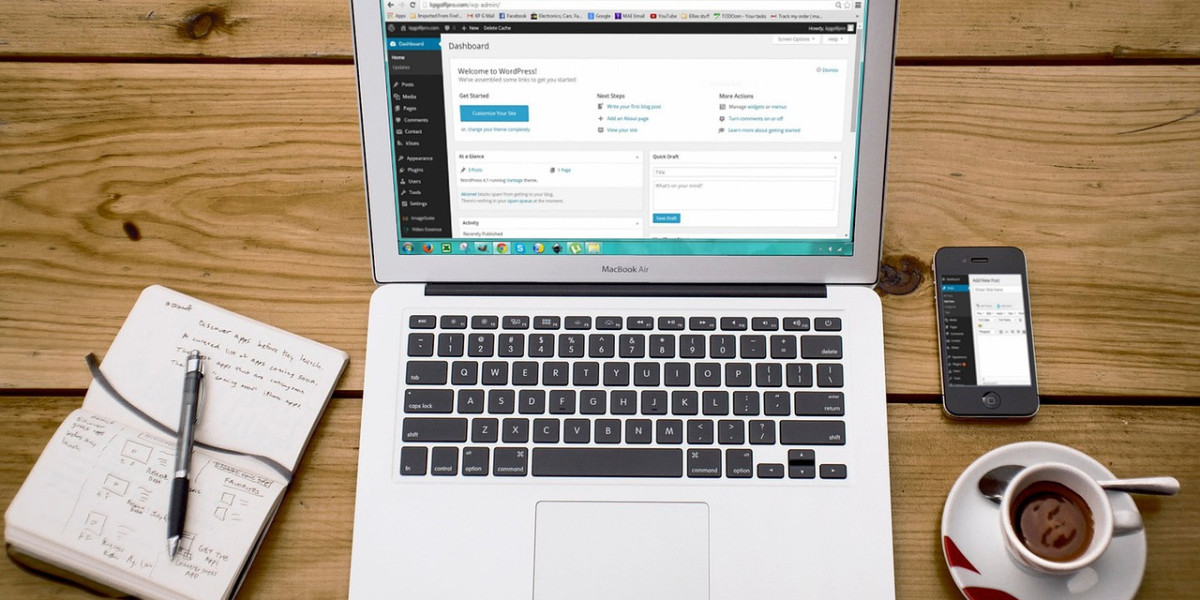Introduction
In today's digital age, having an online presence is essential for businesses, professionals, and creatives alike. WordPress powers over 40% of all websites on the internet, making it the most popular content management system (CMS) globally. Whether you're a beginner wanting to create your first blog or an aspiring developer looking to build websites for clients, a WordPress Website Development Course can be your gateway to a flexible and profitable skill set.
This course is designed to take you from a complete novice to a confident WordPress website builder. It covers everything from the basics of setting up WordPress to advanced customization using themes, plugins, and even some coding essentials.
Why Learn WordPress?
Before diving into the course structure, it's worth understanding why WordPress is such a powerful tool:
User-Friendly Interface: WordPress is intuitive and easy to use, even for beginners with no technical background.
Extensive Customization: Thousands of themes and plugins make it easy to personalize websites without writing code.
Community Support: With a large and active community, finding help and tutorials is always easy.
SEO-Friendly: WordPress sites can be easily optimized for search engines using tools like Yoast SEO.
Scalable: Whether you're building a simple blog or a complex e-commerce platform, WordPress scales with your needs.
Who Should Take This Course?
This course is ideal for:
Beginners with no experience in web development.
Freelancers and entrepreneurs wanting to build websites for themselves or clients.
Bloggers and content creators seeking more control over their websites.
Small business owners looking to establish an online presence.
Aspiring web developers who want a gentle introduction before learning more complex coding languages.
Course Modules
Module 1: Introduction to WordPress
What is WordPress? (Differences between WordPress.com and WordPress.org)
Installing WordPress locally and on a live server
Navigating the WordPress Dashboard
Understanding how WordPress works (Themes, Plugins, Pages, and Posts)
Module 2: Building Your First Website
Choosing the right hosting and domain
Installing a theme and customizing your layout
Adding essential pages: Home, About, Services, Contact
Creating a blog section and publishing your first post
Module 3: Themes and Plugins
Finding and installing free and premium themes
Introduction to page builders (Elementor, WPBakery, etc.)
Essential plugins: SEO, security, backups, and performance
How to evaluate plugin quality and compatibility
Module 4: Website Customization
Customizing menus, widgets, and sidebars
Using the Customizer vs. Theme Options
Managing media: images, videos, and files
Working with shortcodes and widgets
Module 5: E-Commerce with WordPress
Introduction to WooCommerce
Setting up an online store: Products, Payments, Shipping
Managing orders and customers
Customizing your shop layout and functionality
Module 6: SEO and Performance Optimization
Introduction to SEO basics
Installing and using Yoast SEO or Rank Math
Speed optimization: caching, image compression, lazy loading
Mobile responsiveness and UX best practices
Module 7: Security and Maintenance
Best practices to secure your WordPress site
Backup solutions and restoring your site
Regular updates and maintenance tips
User roles and permissions management
Module 8: Going Live and Beyond
Launching your website
Analytics and tracking (Google Analytics, Search Console)
Monetizing your website: ads, affiliate marketing, products
How to freelance with WordPress development skills
What You’ll Learn
By the end of this course, you will:
Create beautiful and functional websites using WordPress
Manage content and structure without writing a single line of code
Understand the core concepts of WordPress architecture
Use powerful tools like Elementor and WooCommerce
Optimize your websites for speed, SEO, and mobile responsiveness
Keep your websites secure and backed up
Start earning as a freelance WordPress developer
Course Features
Hands-on Projects: Build real-world websites as you learn.
Downloadable Resources: Templates, checklists, and guides.
Community Support: Join a forum or Discord server for peer support.
Certificate of Completion: Showcase your skills to clients and employers.
Lifetime Access: Learn at your own pace and revisit lessons anytime.
Tools and Technologies Used
WordPress (latest version)
Elementor or Gutenberg editor
WooCommerce
Yoast SEO / Rank Math
FileZilla, LocalWP, or MAMP (for local development)
Google Analytics and Google Search Console
Conclusion
The demand for WordPress developers and website creators continues to grow as more businesses transition online. Whether you want to build your personal portfolio, launch an e-commerce store, or start a freelance career, a WordPress Website Development Course equips you with the practical skills to make it happen.








